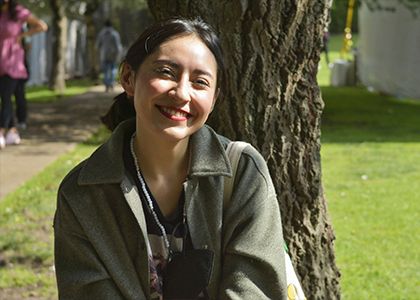
By Stephanie Orozco

Feminist bell hooks once wrote: "Almost all of us find it difficult to accept a definition of love that says we cannot have been loved in an abusive context. Most children who have suffered psychological or physical abuse have learned from their guardians that love and abuse can coexist. And in extreme cases, that abuse is an expression of love. This misconception of love often shapes our adult perception of love." Not acting, not breaking these cycles of violence, contributes in one way or another to other girls moving from one unsafe space to another, depending on the stage they are in. In almost every space we set foot in, from childhood to adulthood, we face contexts of violence, and it is not always the easiest thing to start questioning and breaking it down at home.
Probably one of the hardest challenges we feminists face is to act in new ways (not always well accepted) in our families. Recognizing ourselves as feminists does not oblige us to act to change our contexts. We have tried to remove the responsibility of remaking behaviors, deconstructing men and educating in all the spaces we inhabit. However, the family, being the place where many of us spent several years, after childhood and on our way to adopting feminism, is our first space of reflection as we notice there the first signs of injustices. As our own conviction nurtures us, we discard situations in which we do not feel comfortable. That is why we are told that discomfort is that which makes us move from the places that seem most familiar to us, because it is when we stop normalizing that which prevents us from developing fully.
Letting the people with whom we share a home know about attitudes that may be harming us is, without a doubt, one of the challenges that feminists face and, unfortunately, will continue to face for years and years to come. Talks are not enough, we are the ones who can get to "exaggerate" everything or who are forbidden to talk "about those things" at mealtime. We, the ones who can't decide about our appearance because people will have something to talk about. We, the ones who have to be "ladies" and be good daughters. We are the ones who have to arrive at 10 o'clock, while our siblings may not come home that night. We are the ones who, no matter how many years go by, have to serve more to the plate of the brother who was left hungry.
There is much talk nowadays about honoring those who we were as children because in them there is someone who is taking care of them now. In this sense, it is important to stop assigning ourselves the care of others as if it were a quota with which we must comply. And even more transgressive, to stop doing what men can do and want to pass it off as "favors". How long will the girls who live in us have to live in constant education to care for and serve others? There will be no social justice until girls can devote their own time to education, dispersion and self-care. In no other way can we speak of happy childhoods if they are not loved and respected by their families, respecting their time and space. Let us think about our past and stop seeing childhood as a subject of servitude, an emotional relief or a hope for our care in old age.
The girls they care for are girls who suffer exploitation. The girls who cannot be girls are women who are already getting to know one side of the multiple social injustices and violence that accompany us throughout our lives. For all of them, who today are 8 or 60 years old, I invite them to be everything we did not have to be: rebels.
(2/2)
The opinions expressed are the responsibility of the authors and are absolutely independent of the position and editorial line of Opinion 51.
More than 150 opinions from 100 columnists await you for less than one book per month.






Comments ()